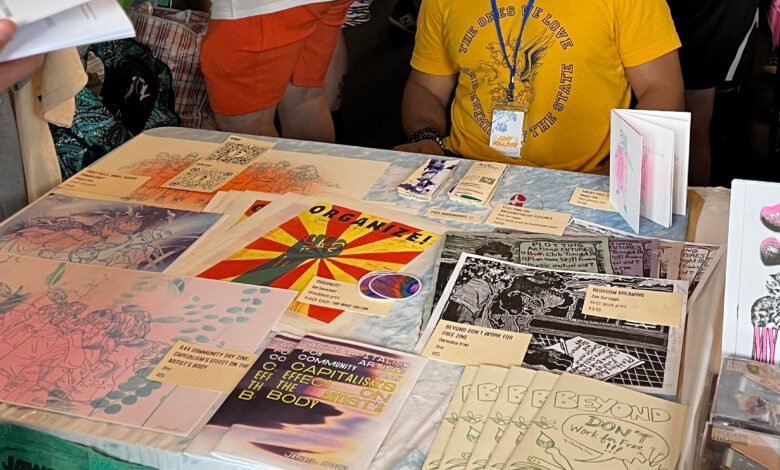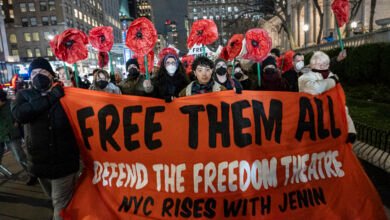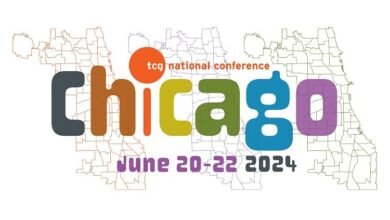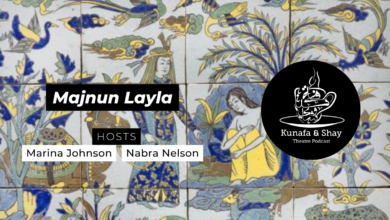
Such is happening right now, thanks to Ife Olujobi’s sharp acumen in sharing her struggle with pay equity as a playwright working at one of the most well-funded and influential theatres in the United States (New York City’s the Public). The criticism kicks off before we even get into the meat of the text where even the essay’s publisher, the Dramatists Guild, catches a stray for failing to pay her to talk about failing to get properly paid. The long and short of the piece itself is that Ife got a production opportunity, quickly realized the pay was trash, said “BBHMM,” found out that wasn’t quite so easy, lobbied and rallied and lobbied again, then ultimately ended up winning an increase not just for herself, but for future playwrights. The entire saga is an account of her truly phenomenal mix of courage, advocacy, and endurance. I cannot stress enough how rare those qualities are to find in a single person. I’m not even a playwright and I need to thank her for her example and for the real material gains she won.
As someone who has been thinking about labor and theatre for a while as both an artist and organizer, a few things in Ife’s story stood out to me. Since graduating from the Juilliard School, I’ve been fortunate to build a career as an actor working at most of the most well-regarded theatres in New York City, and yet I’ve consistently found myself and my fellow artists struggling in subpar working conditions. And so I’ve spent the past four years developing a political education project utilizing theory to raise the level of worker power in our industry. From those experiences, I know many of us are asking why this kind of thing keeps happening and what we can do about it. This is my attempt to build on Ife’s experience towards an understanding of larger economic forces working against theatre workers with some ideas on what we can do about it.
Class. Class? Class!
Ife used the term “conflict” a few times and rightfully cautions others that in advocating for additional pay, “conflict is often necessary.” I would agree, and add that this isn’t just any kind of conflict—it’s class conflict in particular. In my reading of her account, there are two types of characters that appear in her story: the group of people asking (fighting, really) for more money, and those in a position to decide if they get it. These positions, or relationships to capital if you like, are the broad outlines of what constitutes economic classes. I note this not to squabble over semantics, but because class conflict (or struggle) is more or less the bane of our collective existence. Everything from shorter work days, minimum wages, ventilation in workspaces, adequate breaks, etc, had to be fought for in situations just like this. None of it was freely given. Our ability to improve economic processes rests upon our ability to understand how they function. When we understand our struggles as class struggles, we clarify our position in an ongoing history and gain access to a long-standing, deeply refined, and highly effective conceptual arsenal. It is therefore our responsibility to take up these tools, and to resist the tendency to feel we have to reinvent the wheel or start from scratch.
From a class standpoint, Ife’s story is one of being exploited. Exploitation, in its simplest terms, occurs when those who produce value do not get their fair share of it. That’s pretty much any job, including creative ones (even if you make a million dollars on a film set, the studio is making a hundred million). The details are beyond the scope of this writing (Karl Marx’s Wage Labour and Capital will help), but it’s important to clarify that exploitation is not primarily a moral issue. Properly understood, it is structural. Which is to say, exploitation will invariably occur as it constitutes the operating logic of our present economic system (capitalism). While certain individuals may help us out, and certain reforms may occur, exploitation cannot be reformed away, and no amount of kindly supportive folks will change the demands of the system itself.
This is why every Public employee named can be the loveliest person ever (I’ve met many of them and they are), but the organization as a whole simply did not bother updating their pay schedule, even for inflation, in over a decade. It is also why the theatre’s artistic director has been nonetheless compensated something to the tune of almost a million dollars a year while one of the last times I acted in a new play there I was paid $413/week (before taxes, agent fee, and union dues to be exact).
Now, here’s the tricky part. Exploitation is made possible not because of disparity of wages per se, but because only one class directs the flow of value. There are those who produce value and those who control it once produced. Returning to our earlier positions of class: the working class generally produces value, while the employer class (and the substrata among them, the managers) control what to do with it. The secret sauce to maintaining this whole dynamic is that the appropriated value mostly gets directed toward employers increasing the standing of their enterprise while breaking off the bare minimum for their workers in the form of a wage. Because us workers need a wage to survive, we tend to take what we’re given.
Put this way, it’s all pretty bleak and all of us, not only playwrights are subject to it: directors, actors, heck—everybody is on record going through some version of this problem (of which “Nothing for the Group’s” Bills, Bills, Bills column keeps a running tab). This is generally how capitalism works: concealing a more general and pernicious law (structural exploitation through value control) behind the appearances of what is most familiar and normalized to us all (money/wages) that never quite gets at the root of the problem.
The above is only the briefest, most general account. All of those dynamics are at a play in Ife’s struggle, but there are many unique factors, too. For one, the Public is a nonprofit, not conventional enterprise. Additionally, as she mentions, playwrights are prevented from unionizing, and this is because they are considered property owners (the play is their property, which they contract out). These, however, are not obstacles to our problem, they are contradictions—component processes of the larger system. These contradictory particularities are not facts that refute the structural compulsion of exploitation under capitalism, but merely give it specific character.
This isn’t a problem unique to the Public, its staff, or Ife. Nor is the solution one of minting more playwrights like Ife or agents like hers to save us. It’s structural. Not even just industry-wide, but economy-wide.
For example, who did everyone have to rally for in the end? The board of directors. Nonprofit boards tend to be stacked with (high-earning, “successful”) artists associated with the company (and… family members, for some reason), but everyone knows it’s the lawyers, doctors, investors, and entrepreneurs that make the system tick (and many agree it’s a problem). The logic of their corporate influence, privileged as it is by their high standing in the corporate economy, coupled with the financial reality of running a theatre (real estate, labor costs, etc) and larger, increasingly punishing macroeconomic trends result in for-profit logics within ostensibly nonprofit spaces. This is evidenced when Ife notes that the Public attempted to “take a collective issue—fair pay for all playwrights—and turn it into an individual issue.” In any other space we would see this as anti-worker, anti-solidarity behavior predictable of an Amazon or Starbucks.
To reiterate: this isn’t a problem unique to the Public, its staff, or Ife. Nor is the solution one of minting more playwrights like Ife or agents like hers to save us. It’s structural. Not even just industry-wide, but economy-wide. The good news is that the solution isn’t bespoke either. Nobody is coming to save us, because we save ourselves.
It’s Time to Get This Bread
Ife notes that they were a member of Creatives Rebuild New York (CRNY)’s Artist Employment Program (or AEP, itself inspired by the Comprehensive Employment and Training Act). I’m proud to mention I was in the CRNY Think Tank that helped design the AEP and its sibling Guarantee Income (GI) program. Speaking only for myself, Ife has fulfilled the great promise of those programs. Yes, AEP and GI ensure access to a stability that is all too uncommon for artists. But I believe that stability should then be the means whereby artists can question why such a program like the AEP needs to exist in the first place, perceive the various contradictions inherent to artistic exploitation, and use the vantage of their newfound stability to change underlying issues. This is exactly what Ife has done.
Ife notes the relationship between their real, material stability and their concrete actions to engage in advocacy: “My status as artist-in-residence/employee made it easier for me to engage in difficult conversations because it lowered my fear of retaliation from the theatre, and it also gave me the ability to call certain meetings I may not have been able to call if I were engaging from the outside solely as a playwright.”
So, kudos to Ife and kudos to CRNY. The question for the rest of us becomes, how do we carry their work forward? More generally, how do we participate in this kind of work without the financial funding of the Tides Foundation and what seems like a one-of-a-kind champion of an agent?
In short: we link up. We think together, we act together. We organize.
Theatre workers facing the same problems must get together and communicate. Through dialogue, we devise a shared goal and an attendant set of strategies and tactics for achieving it. From this unity and solidarity, we share resources of various kinds (financial, human, intellectual, social, etc), buffeting our individual efforts. Remember, we are not starting from scratch! Study is an indispensable aspect of organizing efforts to sustain themselves—of labor history, organizing techniques, historical contexts, and economic realities. The important thing is to adapt what you learn to shape your effort to the specificity of the goal around which you are organizing.




